ACT 1
in which a young artist is looking for new forms of art
A small village. Masha dates Medvedenko, a strange creature she has invented herself as a cure for her unrequited love for Treplev. Having come to his senses after Doctor Dorn’s therapy, Treplev is in search of new forms of dance, which arouses the interest of the villagers, who, for a short time, become a dance company working on his new production.
A young woman, Nina Zarechnaya, comes out of the group of the villagers. She wants Treplev to take a liking to her and give her a part in his production. Their meeting is interrupted by tipsy Sorin, Treplev’s uncle, who is happy to see his nephew with a girl and even tries to flirt with Nina. Kostya, however, wanting to be left alone with her, sends him on his way. For a moment, Nina and Treplev forget about everything around them — they are extremely happy together. Masha, who sees the budding feeling between the young pair, is unhappy.
The audience is arriving to see the production: Masha, longing for Treplev; Polina Andryevna, her mother, obsessed with Doctor Dorn; Masha’s father, Shamrayev, who — unperturbed — busies himself with his household; Doctor Dorn himself; and Sorin. Finally, Arkadina comes accompanied by her lover Boris Trigorin, a very famous and handsome man.
Treplev makes the audience become a part of his performance, an industrial mystery with Nina Zarechnaya in the lead role. As the performance progresses, the audience and Arkadina’s irony turns into irritation and outrage. At the apogee of the production, Arkadina cannot bear it any longer and interrupts the performance. Full of fierce indignation, the actress — in her retaliation dance — shows that Treplev’s production is worthless and bland. Everybody present applauds. Nina Zarechnaya, who has changed into her ordinary outfit, greets Arkadina and expresses her high regard for the prima ballerina, which hurts already defeated Treplev. The crowd of villagers, who had been inspired by his ideas before, disperse guiltily.
Doctor Dorn is sincerely fascinated by Treplev’s production and attempts to try on one of the costumes. Kostya perceives the doctor’s approval as a sneer. He tries to wreck the stage set and yearns to be with Nina. The doctor gives him some sleeping medicine. Masha, who has been watching this from afar, approaches the sleeping man and declares her love. Alas, he does not hear her.
ACT 2
in which the young artist is looking for new forms in life
Morning in the village. Arkadina is trying to teach the locals to spend Sundays to their liking: sing in a choir or play chess, — but it ends in a fiasco. Besides, she is confused by Nina Zarechnaya’s behaviour — the girl is following Trigorin everywhere with the same enthusiasm she displayed while following Treplev earlier. The seemingly idyllic morning is ruined.
Treplev does not let Nina go — he demands that they go back to their mutual creative work but she finds it boring now. She wants to free herself of Kostya and not let Trigorin slip. Treplev kills a seagull and — as his second piece of performance art — nails it to the floor right in front of Nina. Despite his expectations, his provocation fails to impress. Nina is even further disappointed in her former hero.
Trigorin is looking for a fresh topic, relevant to nowadays’ world, and nothing can inspire him; though Nina, a provincial girl, is fascinated by every detail of the life of celebrities, Trigorin feels bored with her company. However, when she touches the injured seagull, Trigorin suddenly gets excited by the sight of the blood on Nina’s hands. He is euphoric: the topic he has long searched for is finally found and a new hit is born.
The villagers are ecstatic to see Trigorin’s new show. Treplev shoves his way through the crowd. He has brought some hay and tries to set himself on fire. The fire is catching and the horrified audience cannot even move. Arkadina watches the scene in silence. Treplev is burning — it is his performance as well.
ACT 3
in which the young artist abandons his search for new forms
Villagers are celebrating Masha and Medvedenko’s wedding. Masha is in a state of desperate drunk delight. The guests leave. Arkadina and Trigorin are alone but yesterday’s events cast a shadow on their intimacy. Nina has been doing everything to attract Trigorin’s attention. Sorin tries to amuse Arkadina with recollections of their childhood, but right when the two siblings feel revived tenderness to each other, Sorin reminds his sister of her greed and her neglected son, who is feeling terribly lonely without her motherly love and attention.
Arkadina tries to behave lovingly towards her son. She takes off his bandages which have at once protected and bound him after the fire. Overcoming her disgust at the sight of his burns, she does her best to alleviate his pain. For a moment, it seems that the mother and son find mutual understanding. However, the obvious romance between Nina and Trigorin enrages both. Kostya is ready to quit his radical creative experiments if his mother takes her lover away from here.
Trigorin and Arkadina are getting ready to depart. Masha notices the changes in Treplev and makes a desperate attempt to return the Kostya she fell in love with. All villagers now long for the beautiful life in the city, where the prima ballerina and her lover are taken by the train. Trigorin gives Nina a sign to meet him in Moscow.
Arkadina and Trigorin leave their merrily rowdy farewell party.
ACT 4
in which the young artist comes to believe that both old and new forms do not matter...
After Arkadina and Trigorin’s departure, the villagers feel melancholic and discouraged. Treplev is not looking for new forms any longer. He is trying to create a traditional pattern of dance, complying with what he thinks his mother would want. Nina appears in his imagination. On her way to glory, Nina Zarechnaya is nearly knocked off her feet by the crowds in the capital and cut loose by Trigorin — and yet, as if not noticing the obstacles, naïve and willful Nina is still moving onward.
Arkadina and Trigorin return to the countryside and the house comes back to life. Now Treplev looks just like Boris Trigorin — everything his mother wanted him to be.
However, Konstantin Treplev is no match to Trigorin in terms of ease, charm and virtuosity. With the arrival of his mother, Kostya, who exists in his own isolated world, feels his inadequacy stronger and stronger.
The house residents are celebrating the prima ballerina’s return. Masha, though, takes out Treplev’s old stage costume and tries to make him remember his performance. However, Konstantin only feels annoyed.
Kostya is alone. He has been trying to reproduce Trigorin’s choreography with no success. Jokingly, he recreates some movements from his first production and is astonished at how free he used to be. It seems he has lost his talent for carefree and joyful creation.
Nina appears. For a moment, it seems to Treplev they are one with Nina and their old unadulterated feeling is rekindled.
Meanwhile, in the next room, Arkadina and other residents of the house also recall happy times. Everybody hears Nina has come but does their best to ignore her arrival. Nina Zarechniy wants to draw Trigorin’s attention by talking with Treplev; it is impossible not to notice her hysterical behaviour.
Treplev looks at the woman, obsessed with Trigorin, — the woman who caused his disappointment in himself and loss of creativity. He puts her out of the house just like an empty box.
Treplev is alone. His old stage costume is too small and tears apart after the first movement. There is a premonition of something terrible, but everyone present tries to ignore it and continue with their entertainment.
As if going back to his first production, Kostya feels a surge of new creative energy. At the peak of his liberation, Treplev commits suicide. It is his last piece of performance art.


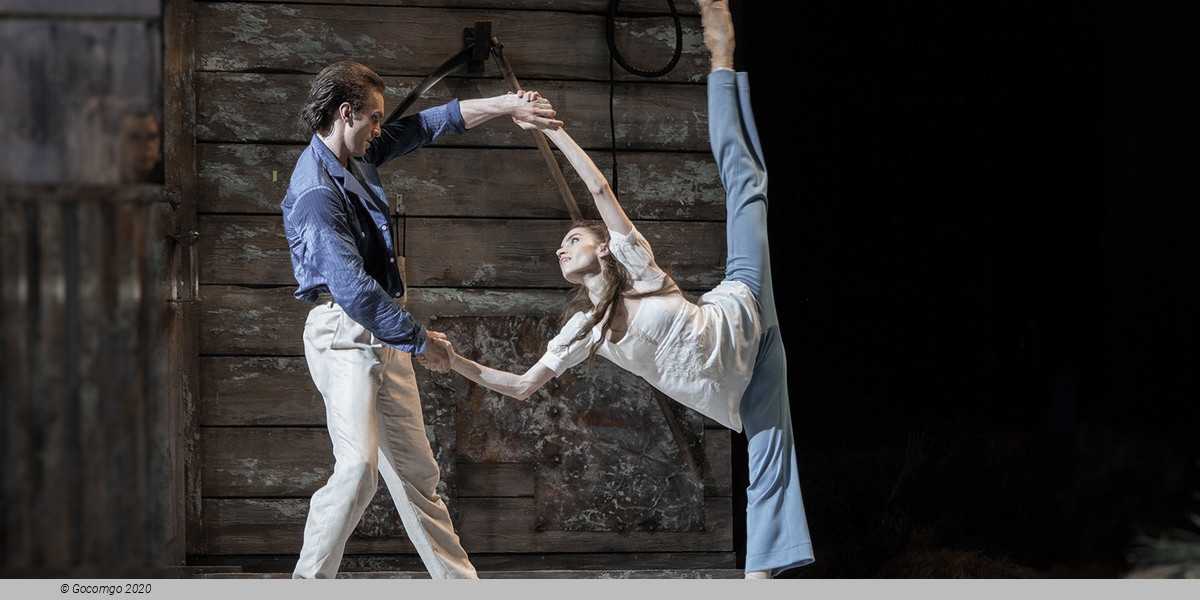
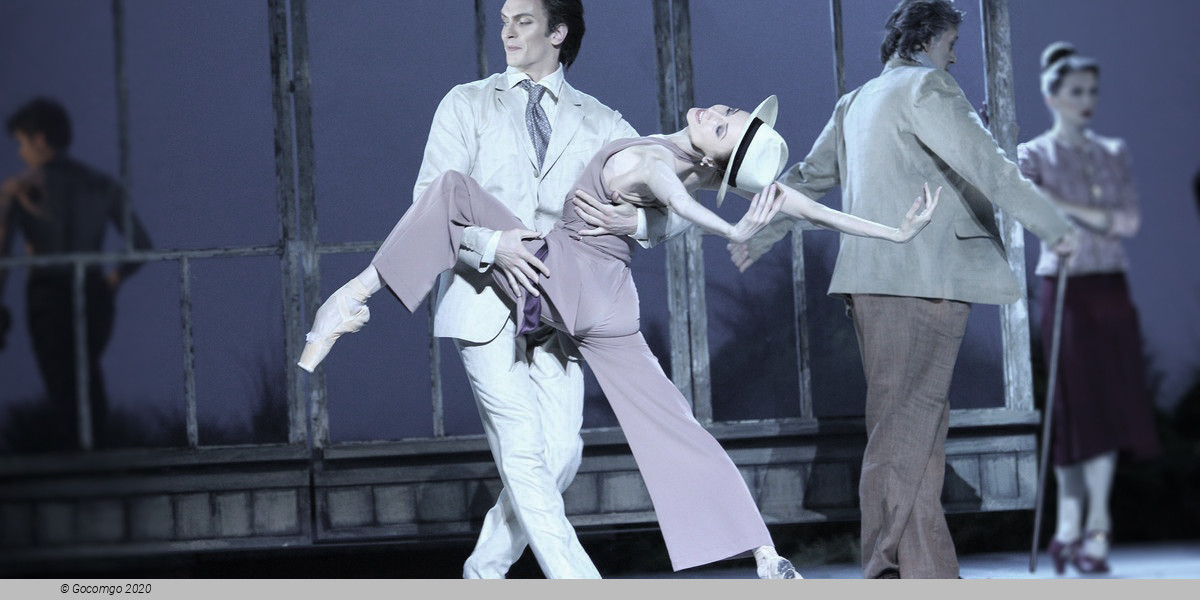
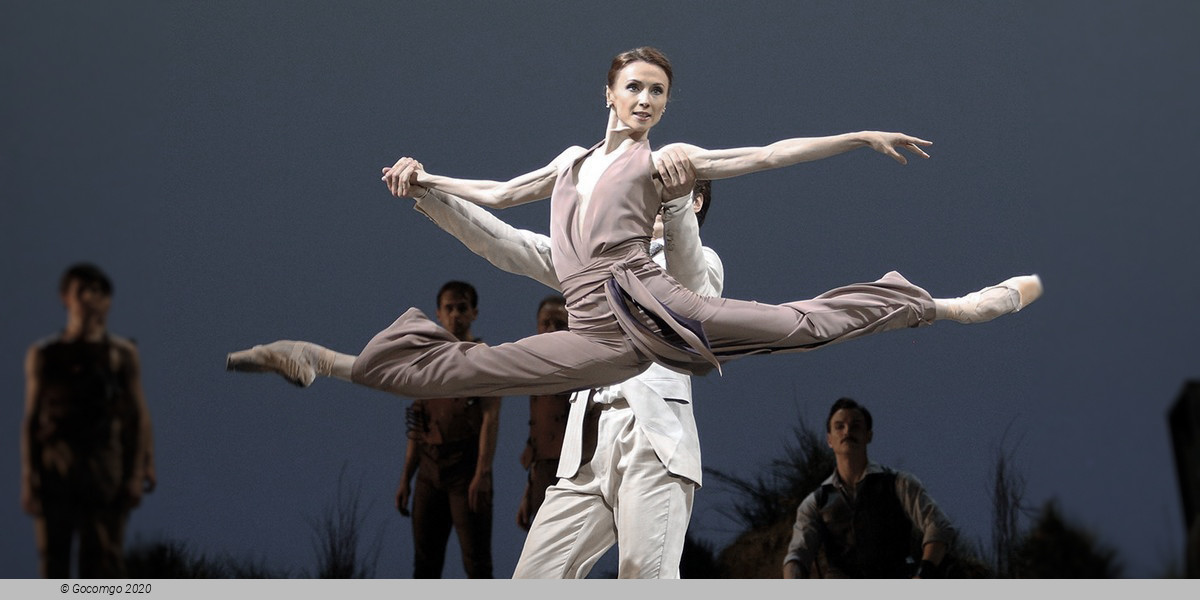
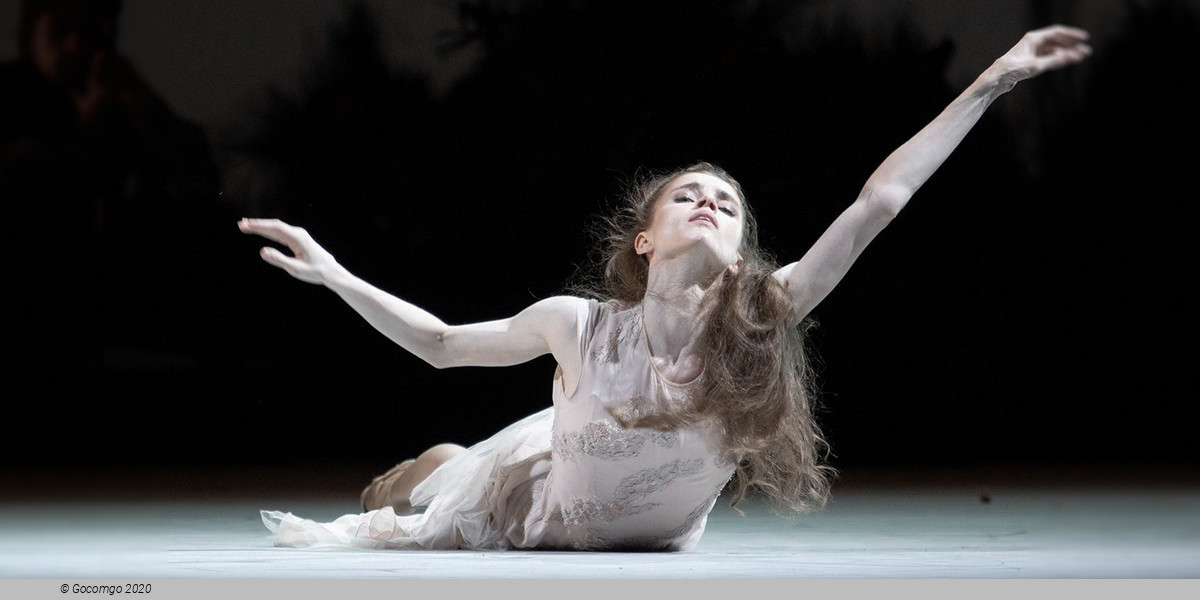
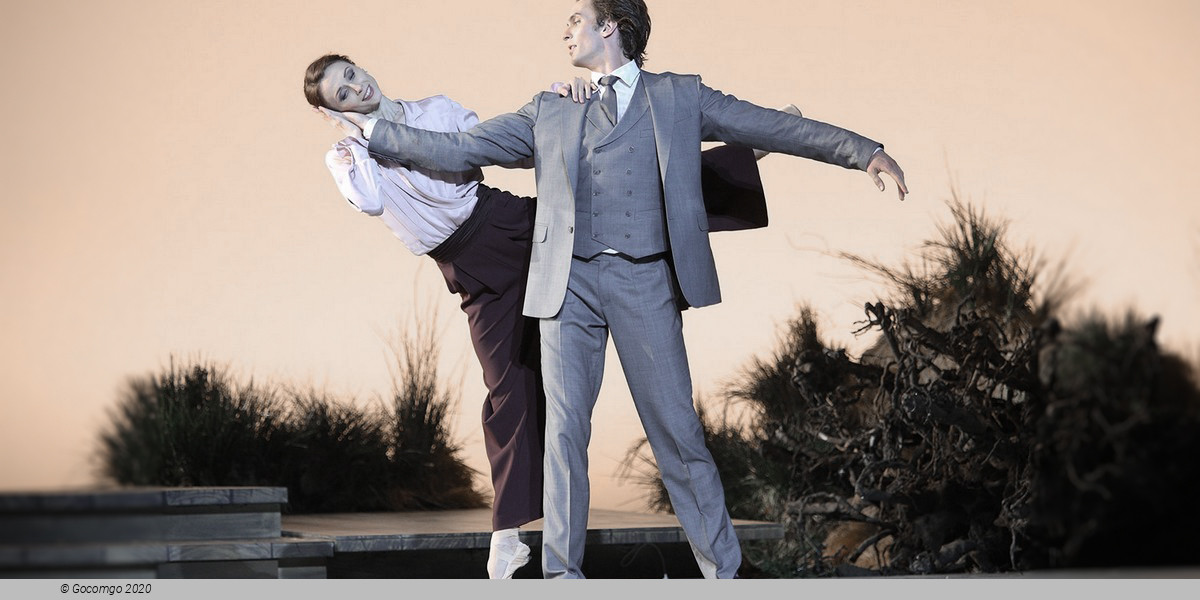
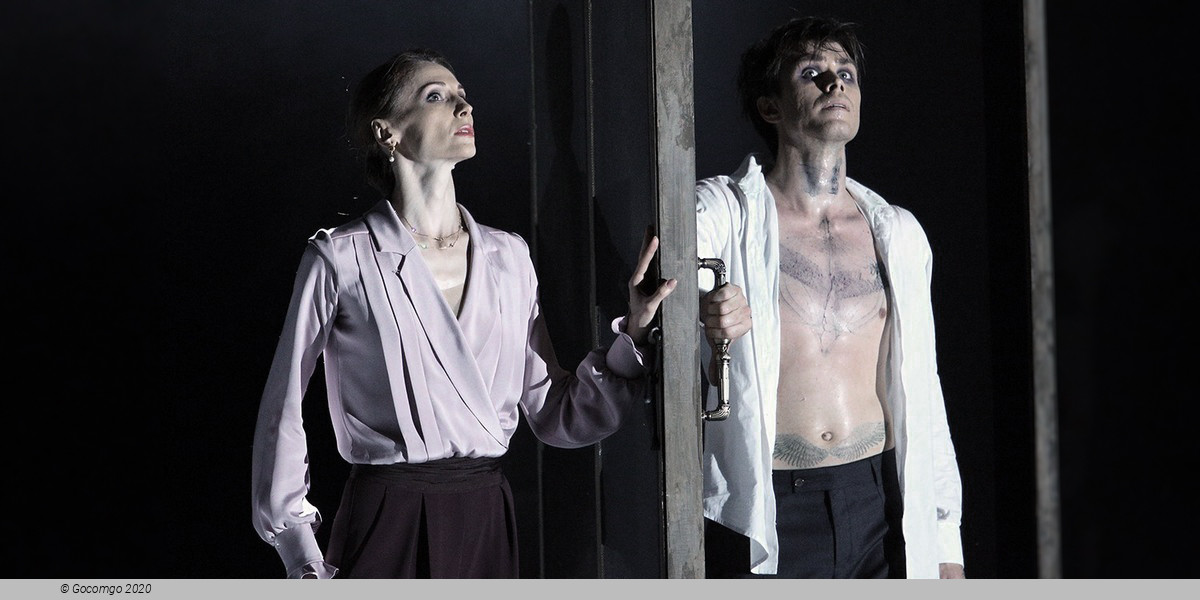
 Teatralnaya Square 1
Teatralnaya Square 1